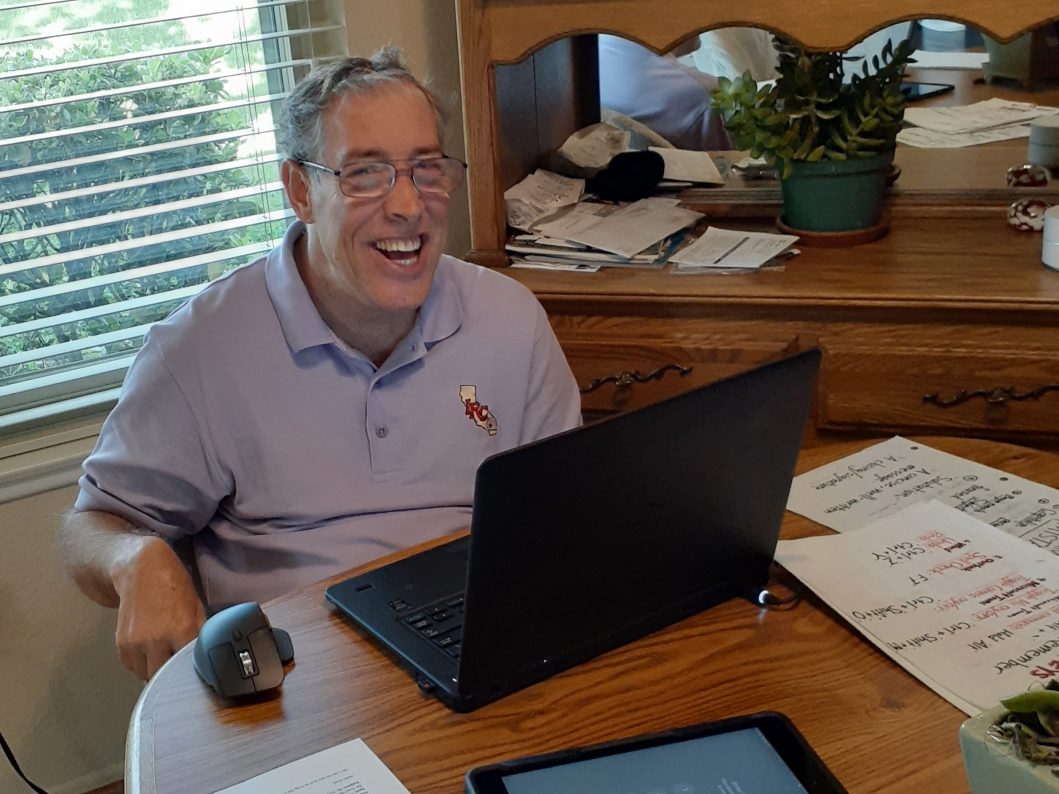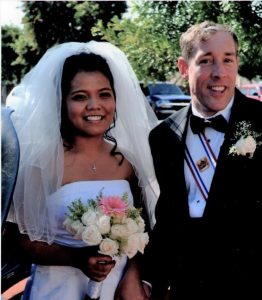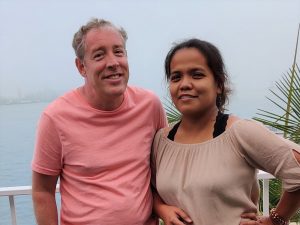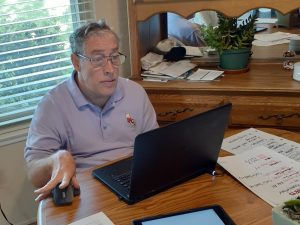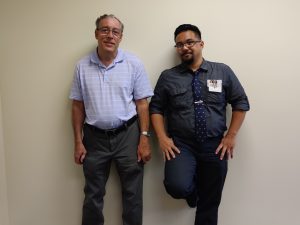Greg Harrison first started with Inland Regional Center (IRC) as a client. He is now a member of the Consumer Advisor Committee (CAC), a social advocacy group for IRC clients ages 16 and older, and an avid advocate for clients’ rights all throughout the Inland Empire. Greg empowers others by sharing his story along with the struggles and triumphs he has encountered living with his disability. Greg was diagnosed with Cerebral Palsy at a young age; however, he has not allowed for his diagnosis to define who he is. He lets his personality shine through his jokes and personal stories, making anyone who meets him instantly feel like they have known him for years.
Ten years ago, Greg married the love of his life, Jocelyn, after falling for each other on a trip to the Philippines. Greg boasts about his wife and her many accomplishments, “she earned her degree in Computer Science in Manila. She now works in the aerospace industry and is close to earning a certification in Quality Assurance Engineering at Howmet Aerospace.” Greg encourages his wife’s dreams and understands the work that goes into fostering a healthy marriage. Greg shared, “It has been a journey for us for ten years because I did not know that marriage is not always easy. We do things together like go see family and we used to belong to a group for marriage couples, Marriage Encounter.” Greg is an open book when it comes to his life, because he believes that it is very important for other people living with a disability to know that they are not alone and can live a full independent life if they choose to do so.
Greg is expecting his first child in November, and with all the joys this news brings, also comes all the worry of a first-time parent. Greg knew it was time to do something different to prepare for the arrival of his child. Greg decided to attend the Self Determination Program (SDP) orientation after hearing about it from one of his colleagues at IRC. He believed, if he was going to become a father he had to gain more independence and control of his future, as this is something important for Greg and an example he wishes to pass down to his child.
“I wanted to try out this program and see how different it was from traditional services, I wanted to become more independent.” Greg shared proudly, “It was scary at first, it sounded like a lot of work, and it is, I heard you had to have an account to manage and keep track and I wasn’t good at numbers, didn’t know how to do that. Why would they put consumers in charge of all these finances when most of them have a hard time with it? After, I learned we had to work with a financial manager to help manage the account, which made me feel less scared.” Greg has seen the many benefits that come from SDP, both personally and professionally. “It has improved my life,” Greg said, “I’m able to do a lot more activities. It has opened doors for me, transportation and job coaching wise.” Greg has since been working with a job coach, Ruben, who was hired through SDP. “He has helped me on how to present, how to talk, how to answer emails, how to receive feedback, and make power points.” Not to mention, Greg and Ruben have also cultivated a rich and rewarding friendship.
The Self Determination Program is designed to put the client in control of their life and the services they receive by allowing clients to choose outside of the traditional services. The five principles listed under self determination include: Freedom, Authority, Support, Responsibility, and Confirmation. The freedom to control what services and providers you want, authority over your budget, support from friends, family, and professionals, responsibility over your case, and the confirmation that comes with knowing you have an important role in making decisions that impact your life.
Anyone receiving services from a regional center, outside of those living in a licensed, long term health facility, is eligible for SDP. To enroll in SDP, you must attend a required orientation, receive training on how SDP works, and agree to work with a Fiscal Management Service. You can choose to have a facilitator and a support system, such as family and friends, to encourage and support you along the way. SDP is not for everyone, however, if you choose to go that route, we hope it is as rewarding and empowering as it has been for Greg.
To learn more about the Self Determination Program, visit the Self-Determination page.
For questions or comments, you can always reach us at [email protected]
Share this Post

